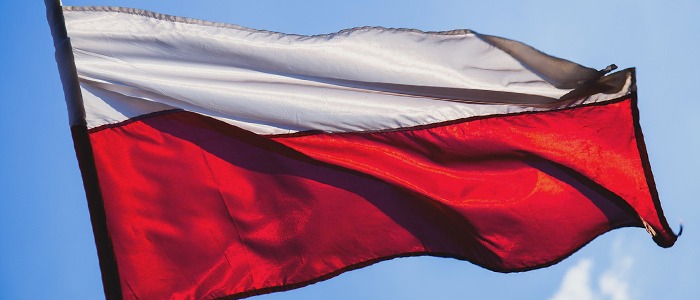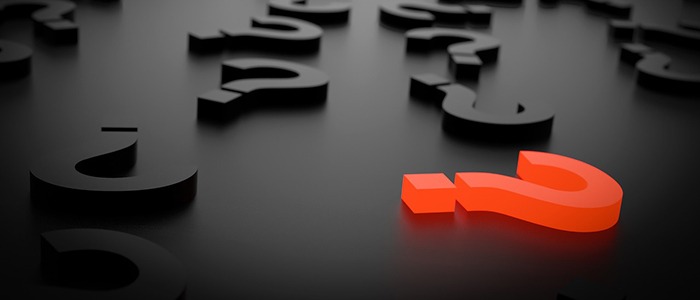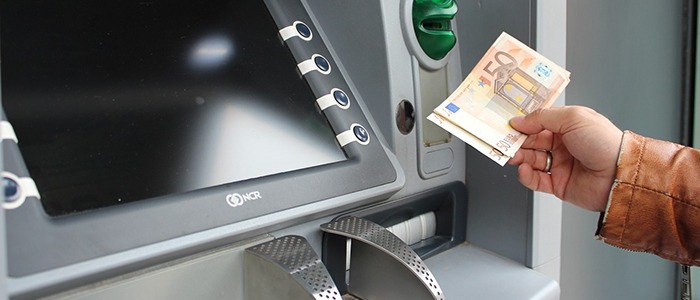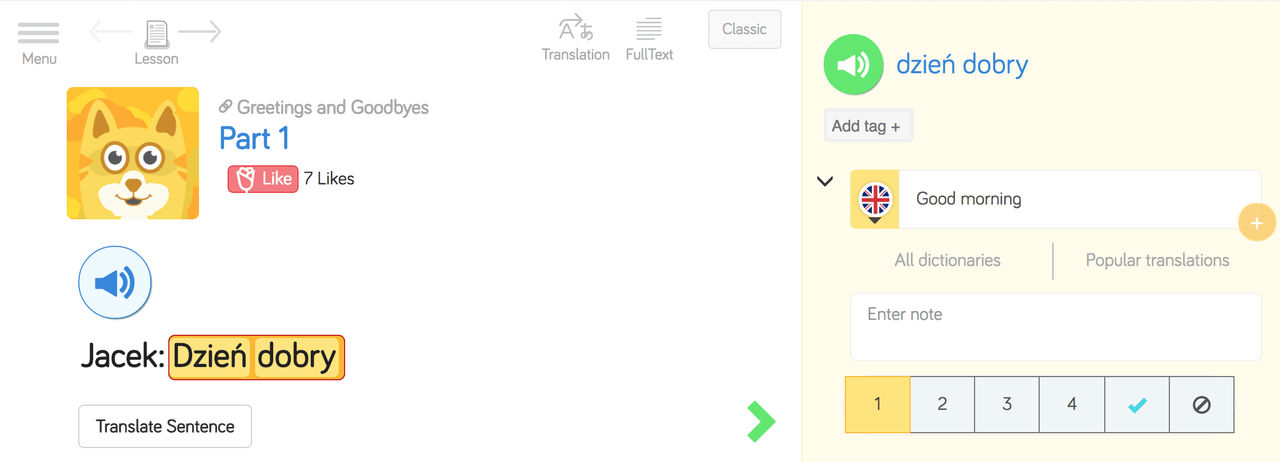Thank you in Polish and Other Polite Expressions
If you’ve just started learning Polish or plan on visiting the country soon, saying hello should be on your shortlist of things to master, along with polite expressions. This post discusses the most important phrases that you can use when asking for things, apologizing and saying thank you in Polish.

How to Ask for Things the Polish Way
There are numerous ways of asking for things in Polish. The easiest is by saying “Przepraszam.” It can mean both “I’m sorry” and “Excuse me”. The use of “Przepraszam.” as “I’m sorry” will be discussed later on in the post.
Przepraszam, jak dojechać do centrum (miasta)? – Excuse me, how do I get to the city center?
Przepraszam, nie chciałem (male speaker) // nie chciałam (female speaker). – I’m sorry, I didn’t mean to.
Another way of asking for something is by expressing the wish with the construction equivalent to the English phrase “I’d like”:
Chciałbym (male speaker) // Chciałabym (female speaker) kupić tę książkę. – I’d like to buy this book.
You can also simply say “Poproszę” which doesn’t have an exact English translation but can be understood as “I’d like”:
Poproszę bilet jednorazowy. – I’d like a single ticket.

Yet another way of asking for things is by using the Polish equivalent of “Can you…?” and more polite “Could you…?”. In an informal context you’d say:
Czy możesz pożyczyć mi 2 złote? – Can you lend me 2 PLN?
or
Czy mógłbyś podać mi sól? – Could you pass me the salt?
In a formal context it’s much more polite to use the second version (Could…?), formally addressing the person as “Mr.” or “Ms.” as presented in the following examples:
Czy mógłby mi Pan pomóc? (when speaking to a man) – Could you help me(, sir)?
Czy mogłaby mi Pani pomóc? (when speaking to a woman) – Could you help me(, Ma’am)?
The use of the equivalent of “Can…?” is acceptable and you’ll hear it around.
Czy może mi Pan pomóc? (when speaking to a man) – Can you help me(, sir)?
Czy może mi Pani pomóc? (when speaking to a woman) – Can you help me(, Ma’am)?

Saying Thank You in Polish
The easiest way to say “Thank you” is with the word “Dziękuję”:
Kupiłam Ci gazetę. (I’ve bought you a newspaper.)
Dziękuję. (Thank you.)
You can also express more gratitude by saying “Dziękuję bardzo”, which means “Thank you very much”.
Alternatively, you could say “Dziękuję Pani” when thanking a female in a formal context or “Dziękuję Panu” to a man.
For “Dziękuję bardzo” things are a bit more complicated with the Mr./Ms. jumping in the middle. This means that you’d say “Dziękuję Pani bardzo” as “Thank you very much” to a woman in a formal context and “Dziękuję Panu bardzo” to a man.

If you’re friends with someone you can stick to “Dziękuję” or be a bit more laid-back and use its shortened informal version “Dzięki”. Similarly, “Dziękuję bardzo” can be used in an informal context or replaced with “Dzięki wielkie”.
Whenever in doubt, you should use the more formal expression. Polish people don’t use “you” as often and easily as English speakers do and using it in the wrong context will be considered rude. You wouldn’t say “Dzięki” thanking a shop assistant unless they’re your age and you feel like being very friendly (or flirty!).
Informal phrases, in general, are reserved for acquaintances, friends and close family. It’s always a good idea to listen out for how a group of people addresses one another before you become informal with them.
There are other ways of expressing gratitude informally, other than just saying “thank you” such as:
Co ja bym bez Ciebie zrobił! (as a male speaker) // Co ja bym bez Ciebie zrobiła! (as a female speaker) – What would I do without you!
Jestem Ci (naprawdę) wdzięczny. (as a male speaker) // Jestem Ci (naprawdę) wdzięczna. (as a female speaker) – I’m (really) grateful.
Doceniam Twoją pomoc. – I appreciate your help.

When you’re the one being helped, you may want to tell someone that it’s not a big deal. The expression “Nie ma za co.” is perfect for that:
Posprzątałam kuchnię. (I’ve cleaned the kitchen.)
Dziękuję. (Thank you.)
Nie ma za co! (You’re welcome!)
Other informal expressions that can be used to say that it’s not a big deal include:
Spoko! – No worries!
Nie ma sprawy! – No problem!
Cieszę się, że mogłem Ci pomóc (as a male speaker) // Cieszę się, że mogłam Ci pomóc (as a female speaker) – I’m happy I could help you.
Cieszę się, że mogłem pomóc (as a male speaker) // Cieszę się, że mogłam pomóc (as a female speaker) – I’m happy I could help.
Only the last expression can be used in a formal context. It can also be modified to an even more polite version. It may seem a bit complicated as the form will be different for male and female speaker as well as depending on the gender of the person you’re talking to. I have underlined which part of the sentence changes:
Cieszę się, że mogłem Panu pomóc. (as a male speaker to a male speaker) – I’m happy I could help you, sir.
Cieszę się, że mogłem Pani pomóc. (as a male speaker to a female speaker) – I’m happy I could help you, Ma’am.
Cieszę się, że mogłam Panu pomóc. (as a female speaker to a male speaker) – I’m happy I could help you, sir.
Cieszę się, że mogłam Pani pomóc. (as a female speaker to a female speaker) – I’m happy I could help you, Ma’am.
You’ll discover after practicing such phrases for a while that it’s not as complicated as it looks like at first sight.

When Something Goes Wrong – Apologizing in Polish
What if something goes wrong and you need to apologize? Let’s say that you’ve spoken informally to someone unknown and much older than you, addressing them as “you”. Mistakes happen, you’re still learning, after all! What you could say is:
Przepraszam. Nie mówię dobrze po polsku. – I’m sorry. I don’t speak Polish well.
If you want to apologize more profoundly by saying that you’re really sorry, you could use one of the expressions below:
Przepraszam bardzo. – I’m really sorry.
Przepraszam Panią bardzo. (or Bardzo Panią przepraszam.) – I’m really sorry(, Ma’am).
Przepraszam Pana bardzo. (or Bardzo Pana przepraszam.) – I’m really sorry(, sir).
All three above expressions can also be used as “Excuse me” in a very polite way:
Przepraszam Panią bardzo, gdzie jest najbliższy bankomat? – Excuse me, where is the nearest ATM?

“Przepraszam.” and “Przepraszam bardzo.” are also suitable for informal conversations. There are few other expressions that you’d be likely to use with friends when apologizing in Polish:
Przykro mi. – I’m sorry.
Sorry! – Do I need to translate this one? 😉 A good old English “sorry” will sort you out in Poland too.
Strasznie przepraszam! – I’m so sorry!
Proszę, nie gniewaj się! – Please, don’t be angry!
Nie gniewaj się! – Don’t be angry!
I hope the expressions and phrases mentioned in this article will help you with your first interactions in Polish. “Magic words” (magiczne słowa) are very useful and can help you out in many situations you’ll encounter as a language learner practicing the language.
Why not import any words your learning in Polish as a lesson on LingQ? The LingQ reader allows you to read through Polish text translating words and phrases as you go. This new vocabulary is then added to your personal dictionary and you will learn it through repeated exposure in future lessons and the LingQ vocabulary activities. Check it out!

Last but not least, don’t forget to smile! Native speakers know that Polish is a difficult language to learn and they’ll surely forgive you whatever mistake you make.
***
Magdalena Osiejewicz-Cooper is a native speaker of Polish. She speaks fluent Italian and French. She is currently self-studying Spanish.
